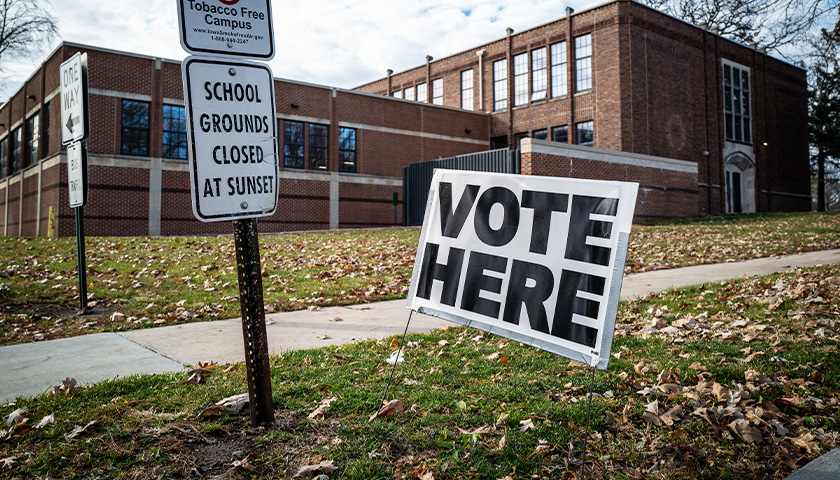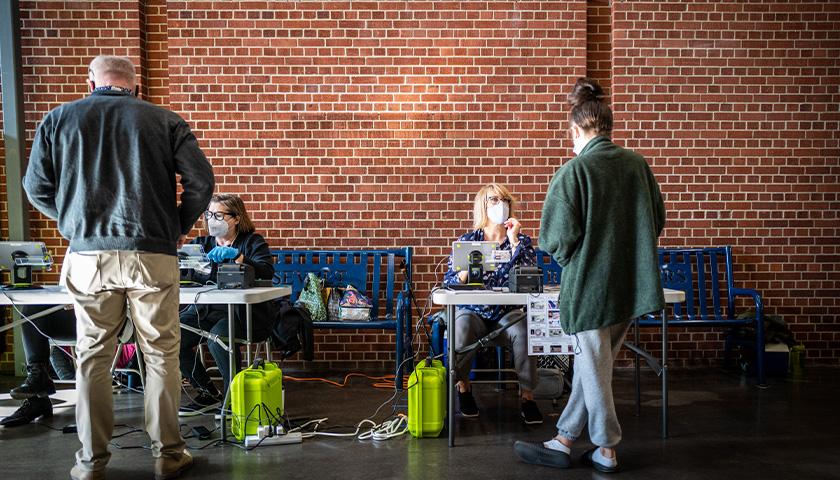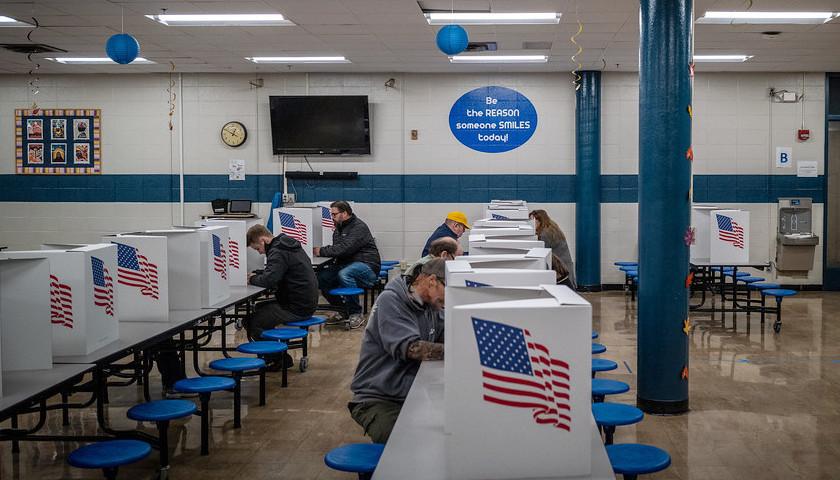by Christian Wade
Connecticut voters would get up to two weeks early voting ahead of federal and state elections under a proposal headed for Gov. Ned Lamont’s desk for consideration.
The legislation, which passed the Democratic-controlled state Senate Tuesday on a 27-7 vote, authorizes a 14-day early voting period for general elections, a seven-day period for primaries, and a four-day early voting period for special elections and presidential primaries. Lamont has pledged to sign the bill, which the House previously approved.
Backers of the plan say Connecticut has become an outlier, with at least 46 states authorizing some form of early voting, many in response to the public health challenges of the COVID-19 pandemic.
“Sometimes it’s hard for us who live and breathe politics to understand the balance that is required in other people’s lives to make the time to go out and vote,” state Sen. Mae Flexer, D-Killingly, said in remarks. “This bill will make a huge difference in getting people to participate in our democracy, and to have their voices heard.”
Under the plan, Connecticut cities and towns must designate at least one early voting location and communities with more than 20,000 residents could establish more sites. Early voting locations must be open from 10 a.m. to 6 p.m., except the last Tuesday and Thursday before the election, when polling locations would be open from 8 a.m. to 8 p.m.
In the 2022 elections, Connecticut voters overwhelmingly approved a measure authorizing early voting for state and local elections but left details of implementing the law up to the state Legislature.
Connecticut’s election laws are viewed as among the most restrictive in the nation, which good government groups argue restricts access to the ballot box.
Secretary of State Stephanie Thomas, who oversees the state’s elections, had urged legislative leaders to offer up to at least 10 days of early voting and provide adequate funding for municipalities to implement the program seamlessly.
But the embrace of early voting will likely come with a hefty price tag for the state. A recent report by the state’s Office of Fiscal Analysis determined that the move could cost from $6.9 million to $9.2 million over the next several years, depending on how many days of early voting are offered.
The cost of required upgrades to the state’s voter registration system and funding a public awareness campaign to educate voters would be anywhere between $3.3 million to $4.8 million, according to the analysis.
The report suggested that in the upcoming fiscal year, the cost for the state could range from $1.8 million to $2.3 million, while Connecticut’s 169 cities and towns would have to chip in an estimated $900,000 combined.
Republicans, many of whom voted against the early voting bill in the Assembly and Senate, have expressed concerns that local governments lack the resources to implement early voting, such as technology upgrades and paying poll workers. They sought unsuccessfully to amend the bill to reduce the number of early voting days and include safeguards.
The state Senate on Tuesday also approved a separate measure that would ask voters by referendum in 2024 to authorize “no-excuse” absentee or mail voting. The House had previously approved the proposal, but both chambers must hold another procedural vote to put it on the ballot.
At least 35 states and the District of Columbia have authorized some form of no-excuse mail-in balloting, which advocates say has increased voter turnout and access.
– – –
Christian Wade is a contributor to The Center Square.
Photo “Vote Here” by Phil Roeder. CC BY 2.0.








